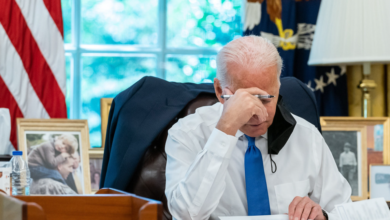Facebook loses Face
 Friday, when Facebook went public and started offering its share at 38 dollars, the hype that escorted the new IPO becoming a publicly traded product, did not last very long. The problems and over speculation that finally drove Facebook from the 42 dollar high that it hit last Friday, only lasted a matter of hours. Facebook closed at just 23 cents above what it entered the market at, only because of the support of the underwriters, such as JP Morgan, who also had to inject the new IPO with a large amount of money just to keep their new investment from having a day one flop.
Friday, when Facebook went public and started offering its share at 38 dollars, the hype that escorted the new IPO becoming a publicly traded product, did not last very long. The problems and over speculation that finally drove Facebook from the 42 dollar high that it hit last Friday, only lasted a matter of hours. Facebook closed at just 23 cents above what it entered the market at, only because of the support of the underwriters, such as JP Morgan, who also had to inject the new IPO with a large amount of money just to keep their new investment from having a day one flop.
Some of the major problems that Facebook encountered that day, along with many of the groups that were selling the stocks, had glitches that slowed down the system when an individual would purchased or sold the shares. Some people who had initially purchased the shares of Facebook reportedly waited hours to actually hear back from their broker. According to the WallStreet Journal, one man George Brady, purchased 1,000 shares of the stock, 6 hours later, Charles Schwab, who he does business with, finally contacted him about his purchase confirmation. The problem that Mr. Brady had, was that minutes after he had purchased the 1,000 shares of Facebook Stock, he decided to cancel his order after watching the new IPO’s stock continue to fall. During those six hours after the stock opened and Mr. Brady decided to sell his stock, Schwab still had not contacted him about his cancellation order, or even his purchase order.
This was not the only problem that the IPO encountered. NASDAQ, had glitches with the ordering system due to the large volume of orders that were taking place around the new IPO. The CEO of NASDAQ Bob Greifeld, told Maria Bartiromo, of CNBC;
“We ran our IPO auction process differently than we run the regular open and close,” Greifeld said. “Typically, we lock the order book two minutes before the auction is to take place.”
The over speculation and hype that surrounded Facebook lead to the Friday afternoon high, however, today with the Monday Blues sinking in after the IPO continued to lose support from some of the underwriters that kept it stable on opening day, have now seem to fade away and let Facebook either live or die on its own merit. Zuckerberg, alone lost a personal wealth of around 6 Billion dollars, while the company itself lost nearly 19 Billion dollars since the opening day Friday. Many of the people around Facebook and those who were on the inside dealings with all that happened, suggested that maybe there should have been a delay of the opening. Frank Lesh, a futures analyst and broker for FuturePath Trading LLC, agreed that Facebook, “At the moment it’s not living up to the hype.”
The strength of Facebook and its actual market value will be tested over the next few months after investors have had time to digest the validity of the company, beyond using it as a social media network.
“In the past eight years, all of you out there have built the largest community in the history of the world,” Zuckerberg said to employees in Menlo Park Friday morning. “You’ve done amazing things that we never would have dreamed of. And I can’t wait to see what you guys all do going forward.”
Now, those same employees of Facebook must prove to the rest of the world that the largest internet community, is actually worth investing in. Brian Wieser at Pivotal Research Group told CNBC;
“Investors are increasingly aware of the risk embedded in the stock price. There are real concerns about growth and advertisers’ frequent lack of certainty how best to use Facebook, along with rising costs and ongoing acquisition risk.”
With the upcoming speculated downgrade of Morgan Stanley and an underwriter of Facebook, many are wondering if the slide of Facebook stock and this possible downgrade of Morgan Stanley will impact one another. If Facebook continues to slide on the market, it could be a huge lose for the big time backer of Facebook, even still, if Facebook continues to slide and Stanley gets a downgrade, will the firm abandon Facebook and let them swim alone in the free market, or will they both continue to fall together. The Free Markets and the buying power of the individual will be the test of both of these organizations. If their product is sound, then maybe they will succeed, if not, then they will fall to the way side for another to rise up. However, Facebook having less liquidity than Stanley by a huge margin, there is more of a chance that Stanley will still be around long after Facebook. No matter what ultimately happens to either of the two industries, it is proof positive that capitalism is still alive and well in America.
of Facebook, even still, if Facebook continues to slide and Stanley gets a downgrade, will the firm abandon Facebook and let them swim alone in the free market, or will they both continue to fall together. The Free Markets and the buying power of the individual will be the test of both of these organizations. If their product is sound, then maybe they will succeed, if not, then they will fall to the way side for another to rise up. However, Facebook having less liquidity than Stanley by a huge margin, there is more of a chance that Stanley will still be around long after Facebook. No matter what ultimately happens to either of the two industries, it is proof positive that capitalism is still alive and well in America.





I’ve been following the Facebook hoopla. Facebook is down again today. I enjoyed reading this article.